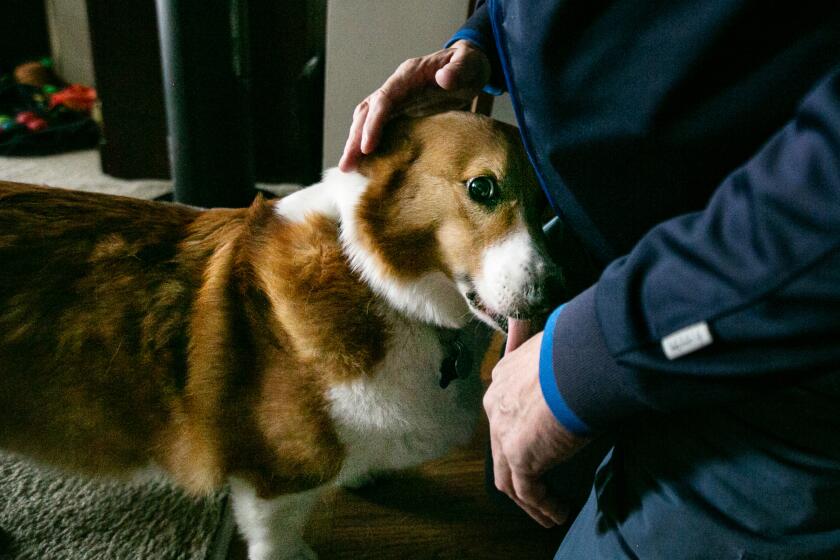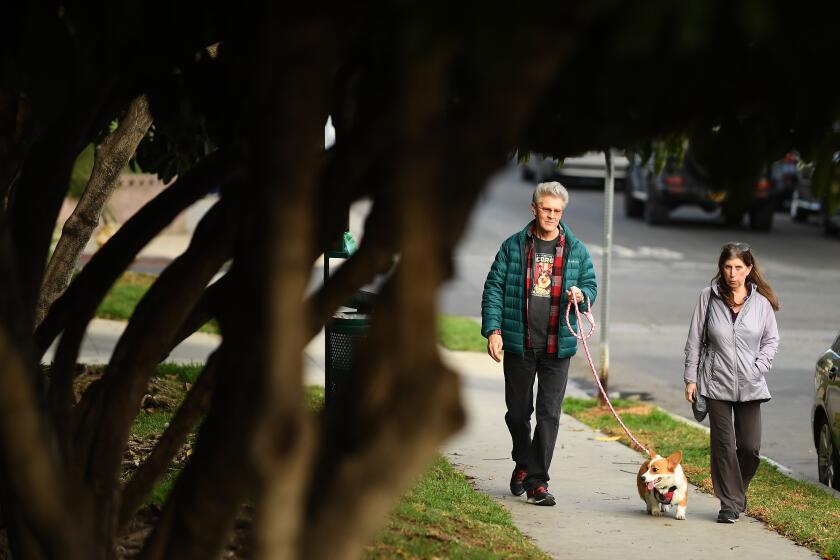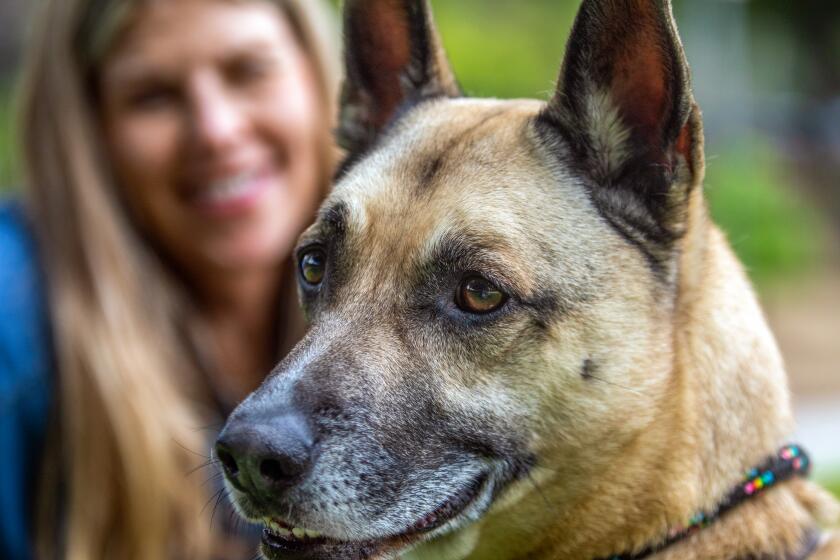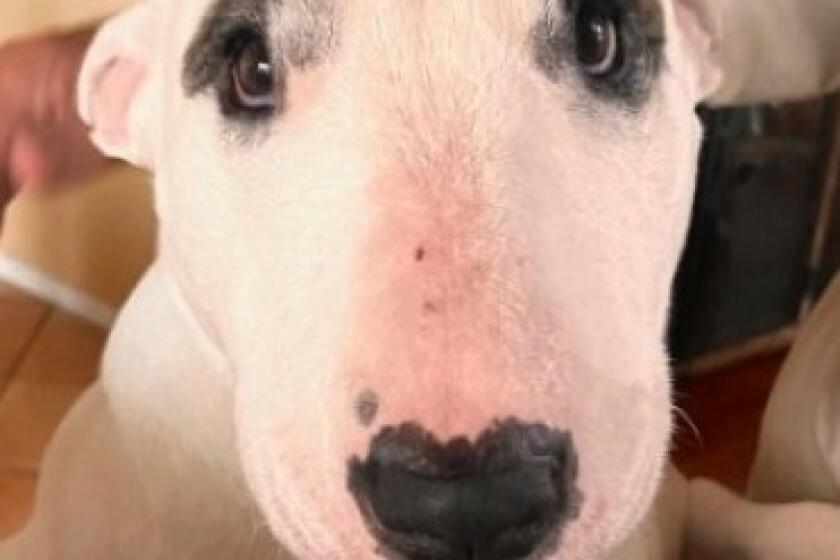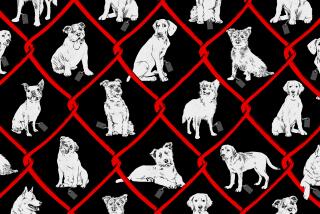Opinion: The love of a corgi saved a homeless man. The love of his friends couldn’t
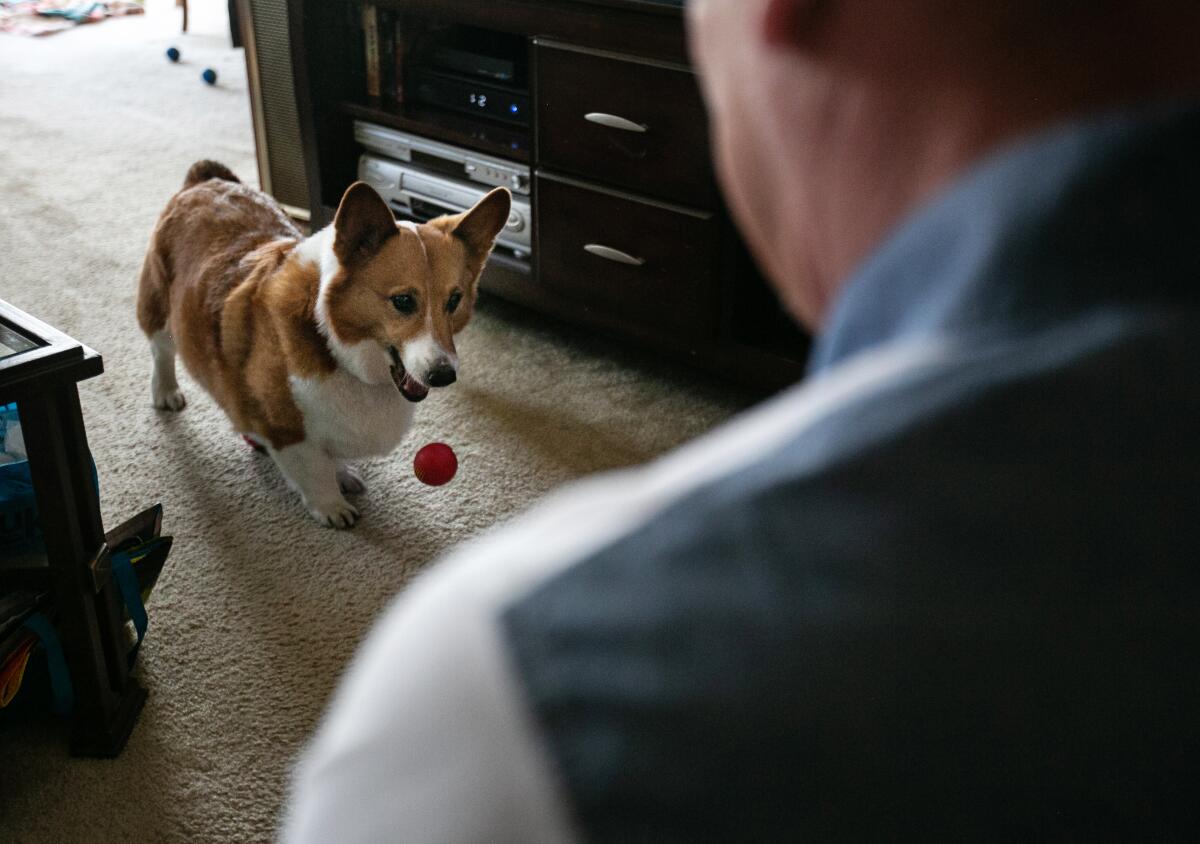
- Share via
My dad had a simple rule: If someone needs your help, and you can give it, you do.
So it was an easy decision for my wife and me to foster an older corgi in 2020 so that the dog’s owner, a professional man who had lost his job and slid into addiction and homelessness, could go to rehab and have a chance to get back on his feet. We took the corgi into our Hollywood apartment, gave it a bath, and set about trying to heal the stress and trauma it had suffered.
When a man loses his job and becomes homeless, a couple fostering his dog lends a hand.
The dog helped us heal too, from the loss of our own beloved corgi months earlier. And after its owner got sober, and was given help finding a job and place to live, the joy when they went home together made any sacrifices we had made seem more than worth it.
Over time, the man became a kind and generous friend to us, driving me to doctor’s appointments when diabetes made me give up my car, and taking us to dinner and the Hollywood Bowl. He even offered financial help after the company my wife had worked for shut down.
It seemed like a literal Hollywood happy ending. But while celluloid stories wrap up in tidy ways, real life seldom does.
A man with a PhD lost his six-figure job and became homeless. He asked strangers to foster his dog. When his story was told, help poured in and gave him what he needed to get back on his feet.
It didn’t take long for cracks to show again.
On the surface, the man had regained the stability and success he once had enjoyed. But underneath, we saw self-doubt and distress. He was afraid to take his corgi into public spaces, quickly undoing the work we had done to socialize the dog. And then, the beloved corgi was diagnosed with cancer and canine dementia.
Eventually the poor dog was unable to recognize the man it had loved for so long, and in the fall of 2022 our friend had to let the one true love of his life go. My wife and I tried to be there for him, feeling the loss of the dog we had once fostered too, but the man withdrew and we struggled to maintain contact.
After her rescue dog, Buddy, bit someone, Michelle Madden tapped bad-dog experts for help. Their advice made the situation worse, so Madden had to find another solution.
He’d periodically resurface, describing his deep, depressive hole, and how he had crawled back into the bottle to cope. He seemed to fear what we’d think. But another lesson from my dad, which has stuck with me for all these years, is that no one is my better, and no one is beneath me.
So I tried to remind the man that the only shame in falling is not getting up again. He adopted another dog, a corgi puppy, about a month after his first dog passed, but it didn’t seem to help. He began cycling through a series of jobs, losing one position after another. He disappeared for weeks at a time.
Our fears for our friend deepened during the recent holidays when we heard nothing from him. Our texts, calls and emails went unanswered. We waited for him to resurface.
We felt like our adopted dog was a gun with no safety and worried she’d hurt someone.
Finally, in mid-January we received a call from the man’s building manager. She had gone to his apartment to see why he hadn’t paid the rent. She found our friend dead on the floor.
The medical examiner concluded he had died from a heart attack sometime around the first of the year. His new corgi had been locked in his crate possibly for as long as 10 days, without food or water. The man’s neighbors have now taken it in.
In the end, we think our friend died of a broken heart. We know how hard he took the death of the corgi we fostered. I like to think he and his dog are together again, somewhere.
We took my father’s lesson literally. We saved a corgi to help save a homeless man. We tried, and failed, to save the man too.
Ted Rogers is a writer and creative director. He is the editor of BikinginLA.
More to Read
A cure for the common opinion
Get thought-provoking perspectives with our weekly newsletter.
You may occasionally receive promotional content from the Los Angeles Times.
